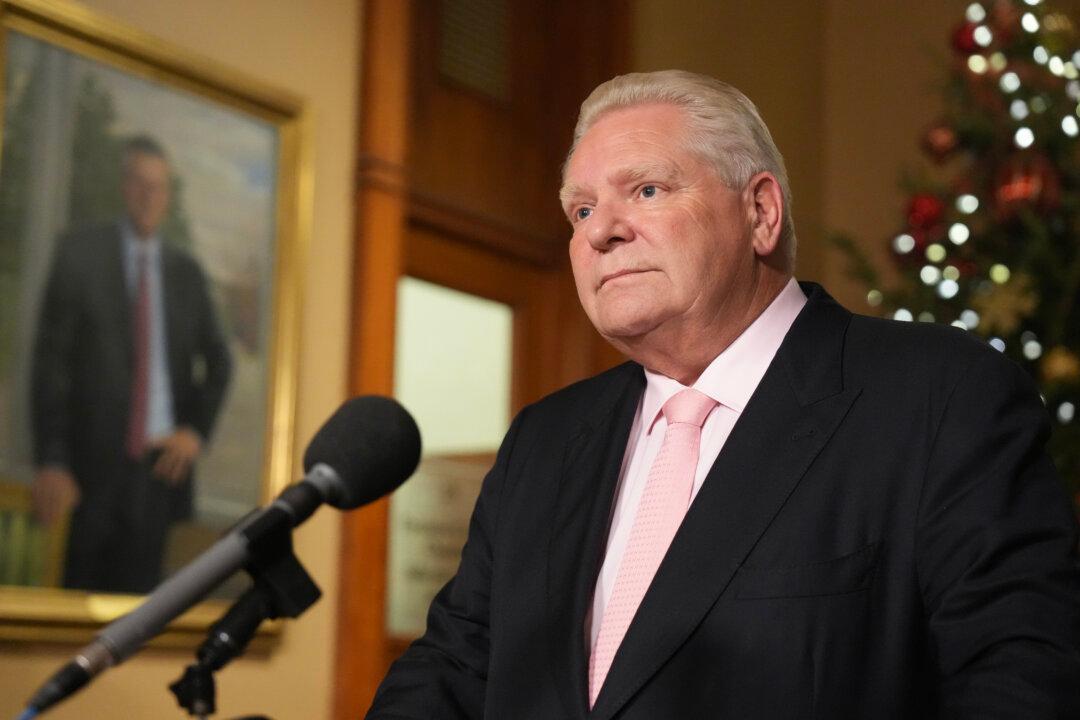Provincial premiers will meet with Prime Minister Justin Trudeau and his cabinet on Jan. 15 to discuss potential responses to incoming U.S. President Donald Trump’s vow to impose a 25 percent tariff on Canadian imports.
Ahead of the premier’s meeting in Ottawa, Ontario Premier Doug Ford again warned that such trade tensions between allies will only benefit China.





